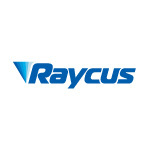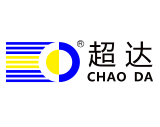Xin Lang Zheng Quan
Search documents
东田微涨2.19%,成交额2.28亿元,主力资金净流出1047.05万元
Xin Lang Zheng Quan· 2026-01-27 02:34
Core Viewpoint - Dongtian Micro's stock price has shown volatility, with a recent increase of 2.19% on January 27, 2025, while the company has experienced a year-to-date decline of 2.42% [1][2]. Group 1: Stock Performance - As of January 27, 2025, Dongtian Micro's stock price is reported at 151.34 yuan per share, with a trading volume of 2.28 billion yuan and a turnover rate of 2.61%, resulting in a total market capitalization of 12.119 billion yuan [1]. - The stock has fluctuated with a 6.94% increase over the last five trading days, a 7.96% decrease over the last 20 days, and a significant 48.59% increase over the last 60 days [2]. Group 2: Financial Performance - For the period from January to September 2025, Dongtian Micro achieved a revenue of 637 million yuan, reflecting a year-on-year growth of 53.91%, while the net profit attributable to shareholders reached 80.03 million yuan, marking a 99.20% increase [2]. - The company has distributed a total of 20 million yuan in dividends since its A-share listing [3]. Group 3: Shareholder Information - As of November 10, 2025, the number of shareholders for Dongtian Micro is reported at 20,800, an increase of 0.87% from the previous period, with an average of 2,825 circulating shares per shareholder, a decrease of 0.86% [2]. - Notable new institutional shareholders include the Fuguo Innovation Technology Mixed Fund, holding 750,000 shares, and the Huaxia Excellent Growth Mixed Fund, holding 642,200 shares [3].
星源卓镁1月26日获融资买入2161.57万元,融资余额1.04亿元
Xin Lang Zheng Quan· 2026-01-27 01:30
Core Viewpoint - Xingyuan Zhuomei experienced a decline of 5.88% in stock price on January 26, with a trading volume of 182 million yuan, indicating potential market volatility and investor sentiment concerns [1]. Financing Summary - On January 26, the financing buy amount for Xingyuan Zhuomei was 21.62 million yuan, while the financing repayment was 13.41 million yuan, resulting in a net financing buy of 8.21 million yuan [1]. - As of January 26, the total financing and securities lending balance for Xingyuan Zhuomei was 10.4 million yuan, which constitutes 4.46% of its circulating market value, indicating a low financing balance compared to the past year [1]. - In terms of securities lending, 100 shares were repaid on January 26, with no shares sold, and the securities lending balance was 38.19 million yuan, which is above the 90th percentile of the past year, suggesting a high level of short interest [1]. Business Performance - As of September 30, the number of shareholders for Xingyuan Zhuomei increased by 18.95% to 15,900, while the average circulating shares per person decreased by 15.93% to 2,109 shares [2]. - For the period from January to September 2025, Xingyuan Zhuomei reported a revenue of 292 million yuan, reflecting a year-on-year growth of 1.48%, while the net profit attributable to shareholders decreased by 19.63% to 45.07 million yuan [2]. Dividend and Shareholding Structure - Since its A-share listing, Xingyuan Zhuomei has distributed a total of 83.2 million yuan in dividends [3]. - As of September 30, 2025, notable institutional shareholders include CITIC Jiantou Rotation Mixed A, which is the second-largest shareholder with 384,100 shares, and Penghua Carbon Neutral Theme Mixed A, the third-largest with 338,500 shares, both of which are new shareholders [3].
银邦股份1月26日获融资买入1.47亿元,融资余额8.09亿元
Xin Lang Zheng Quan· 2026-01-27 01:24
1月26日,银邦股份跌6.44%,成交额18.33亿元。两融数据显示,当日银邦股份获融资买入额1.47亿 元,融资偿还1.66亿元,融资净买入-1862.29万元。截至1月26日,银邦股份融资融券余额合计8.09亿 元。 分红方面,银邦股份A股上市后累计派现1.08亿元。近三年,累计派现2465.76万元。 机构持仓方面,截止2025年9月30日,银邦股份十大流通股东中,南方中证1000ETF(512100)位居第 六大流通股东,持股450.68万股,相比上期减少6.56万股。华夏中证1000ETF(159845)位居第八大流 通股东,持股268.05万股,相比上期减少3500.00股。广发中证1000ETF(560010)退出十大流通股东之 列。 责任编辑:小浪快报 资料显示,银邦金属复合材料股份有限公司位于江苏省无锡市新吴区鸿山街道后宅鸿山路99号,成立日 期1998年8月25日,上市日期2012年7月18日,公司主营业务涉及铝合金复合材料、铝基多金属复合材料 以及铝合金非复合材料的研究、生产和销售业务。主营业务收入构成为:金属复合材料99.37%,其他 (补充)0.36%,装备制造0.27%。 截至1月 ...
一拖股份1月26日获融资买入3158.81万元,融资余额1.66亿元
Xin Lang Zheng Quan· 2026-01-27 01:24
机构持仓方面,截止2025年9月30日,一拖股份十大流通股东中,香港中央结算有限公司位居第四大流 通股东,持股370.15万股,相比上期减少6.20万股。南方中证1000ETF(512100)位居第五大流通股 东,持股200.40万股,相比上期减少1.94万股。华夏中证1000ETF(159845)位居第十大流通股东,持 股119.29万股,相比上期减少600.00股。广发中证1000ETF(560010)退出十大流通股东之列。 1月26日,一拖股份涨1.58%,成交额2.03亿元。两融数据显示,当日一拖股份获融资买入额3158.81万 元,融资偿还2895.26万元,融资净买入263.55万元。截至1月26日,一拖股份融资融券余额合计1.66亿 元。 责任编辑:小浪快报 融资方面,一拖股份当日融资买入3158.81万元。当前融资余额1.66亿元,占流通市值的1.54%,融资余 额低于近一年10%分位水平,处于低位。 截至9月30日,一拖股份股东户数3.39万,较上期减少7.55%;人均流通股21786股,较上期增加8.22%。 2025年1月-9月,一拖股份实现营业收入97.03亿元,同比减少9.63%;归 ...
美亚光电1月26日获融资买入2501.28万元,融资余额1.60亿元
Xin Lang Zheng Quan· 2026-01-27 01:24
Core Viewpoint - Meiya Optoelectronics experienced a decline of 1.86% in stock price on January 26, with a trading volume of 216 million yuan, indicating a potential market reaction to recent financial data and trading activities [1]. Financing Summary - On January 26, Meiya Optoelectronics had a financing buy amount of 25.01 million yuan and a financing repayment of 16.73 million yuan, resulting in a net financing purchase of 8.28 million yuan. The total financing and securities balance reached 161 million yuan [1]. - The current financing balance of 160 million yuan accounts for 0.86% of the circulating market value, which is above the 60th percentile level over the past year, indicating a relatively high financing position [1]. - In terms of securities lending, there were no shares repaid on January 26, with 100 shares sold short, amounting to 2,116 yuan at the closing price. The securities lending balance was 1.11 million yuan, which is below the 20th percentile level over the past year, suggesting a low short-selling interest [1]. Financial Performance - For the period from January to September 2025, Meiya Optoelectronics reported a revenue of 1.694 billion yuan, reflecting a year-on-year growth of 7.35%. The net profit attributable to shareholders was 519 million yuan, marking a 15.30% increase compared to the previous year [2]. - Since its A-share listing, Meiya Optoelectronics has distributed a total of 4.898 billion yuan in dividends, with 1.852 billion yuan distributed over the past three years [3]. Shareholder Structure - As of January 20, 2025, the number of shareholders for Meiya Optoelectronics was 25,800, a decrease of 2.72% from the previous period. The average number of circulating shares per shareholder increased by 2.74% to 16,814 shares [2]. - Among the top ten circulating shareholders, Hong Kong Central Clearing Limited is the second-largest shareholder with 61.95 million shares, having increased its holdings by 10.17 million shares. New shareholder China Europe Value Select Mixed A holds 5.51 million shares, while Fu Guo Long-term Growth Mixed A holds 5.32 million shares, having increased its holdings by 251,500 shares [3].
远征传导申请“一种军用特种抗延燃耐磨损柔软电缆材料”专利
Xin Lang Zheng Quan· 2026-01-27 00:39
专利摘要显示,本发明公开有一种军用特种抗延燃耐磨损柔软电缆材料,属于电缆材料加工技术领 域,用于解决在现有技术中电缆材料的延燃性能和耐磨性能有待进一步提高的技术问题,具体包括由内 而外依次设置的绝缘橡胶层、绕包层和护套层,绝缘橡胶层由若干根相互绞合的金属合金线组成的线芯 和线芯外部包覆的橡胶组成。本发明是通过制备出含有氮磷的阻燃扩链剂,进一步以聚乙二醇为软段, 以二苯基甲烷二异氰酸酯为硬段,以阻燃扩链剂为扩链剂,以丙烯酸‑2‑羟乙基酯为封端剂,得到阻燃 改性聚氨酯,不仅提高电缆材料的延燃性能和耐磨性能,还提高其力学性能。 2026年1月24日消息,国家知识产权局信息显示,安徽远征传导科技股份有限公司申请一项名为"一 种军用特种抗延燃耐磨损柔软电缆材料"的专利。申请公布号为CN121379128A,申请号为 CN202511663528.1,申请公布日期为2026年1月23日,申请日期为2025年11月13日。 ...
1月26日增减持汇总:浪潮信息等9家公司拟减持 开拓药业增持(表)





Xin Lang Zheng Quan· 2026-01-26 12:53
Group 1 - On January 26, 2023, Keda Pharmaceuticals disclosed that its chairman, Zhongyou Zhi, invested HKD 10.82 million to increase his stake by 4.7 million shares [1][2] - A total of nine listed companies announced plans to reduce their holdings, including Kaipu Detection, Ruike Laser, Inspur Information, Yashichuangneng, Chaoda Equipment, Jianlong Micro-Nano, Sun Cable, Jianghang Equipment, and Shengda Bio [1][2] Group 2 - Kaipu Detection's shareholders plan to collectively reduce their holdings by no more than 3.2154% of shares [2] - Ruike Laser's directors and executives, including Wang Wei, intend to reduce their holdings by no more than 0.085% of shares [2] - Inspur Information's Huang Shipeng and executive Liu Jun plan to reduce their holdings by no more than 30,000 shares [2] - Yashichuangneng's controlling shareholder's concerted action party plans to passively reduce its stake by 3% [2] - Chaoda Equipment's shareholder, Zhongda Investment, intends to reduce its holdings by no more than 1.55% of shares [2] - Jianlong Micro-Nano's shareholder, Shen Yunlong, plans to reduce its holdings by no more than 2.00% of shares [2] - Sun Cable's shareholder, Qili Group, intends to reduce its holdings by no more than 3% of shares [2] - Jianghang Equipment's shareholder, Guoxin Capital, plans to reduce its holdings by no more than 1.00% of shares [2] - Zhidaniu's shareholder, Wanjian Investment, intends to reduce its holdings by no more than 3% of shares [2]
调研速递|润邦股份接待华夏基金等3家机构 在手订单充足智能化升级提速
Xin Lang Zheng Quan· 2026-01-26 12:40
Group 1: Business Development - The company has achieved significant business expansion since 2026, securing various domestic and international orders in the material handling equipment sector, including tire cranes and gantry cranes [1] - The offshore engineering and special transportation vessel projects are progressing smoothly, with a substantial backlog of orders [1] Group 2: Strategic Focus - The shipbuilding and offshore engineering equipment business is identified as a core strategic area and a key driver for future performance growth, supported by a recovering global offshore oil and gas capital expenditure and increasing demand for high-end offshore vessels [2] Group 3: Technological Innovation - The company has established comprehensive smart manufacturing capabilities across the entire product lifecycle, enhancing production efficiency and quality through digital twin technology and energy management systems [3] - The focus on port automation has led to multiple orders for automated port equipment, aligning with the trend towards smart ports [3] Group 4: Market Presence - The company's products and services are now available in over 50 countries, with ongoing efforts to optimize international sales and after-sales service networks, particularly in developing markets [4] Group 5: Shareholder Returns - The company has implemented a stable dividend mechanism, with a proposed dividend of 3 yuan per share for the 2024 fiscal year, resulting in a payout ratio of 54.55% and cumulative dividends of 800 million yuan since its listing [5]
南通超达装备员工持股平台拟减持不超125万股 占总股本1.55%
Xin Lang Zheng Quan· 2026-01-26 12:00
登录新浪财经APP 搜索【信披】查看更多考评等级 2026年1月26日,南通超达装备股份有限公司(以下简称"公司")发布公告称,公司首发前员工持股平 台南通市众达投资管理中心(有限合伙)(以下简称"众达投资")计划在未来3个月内减持公司股份, 减持数量不超过125.0004万股,占公司剔除回购专用账户后总股本的1.55%。 公司表示,将持续关注减持计划的进展,及时披露相关情况,并督促众达投资严格遵守法律法规,履行 信息披露义务。 截至1月23日,公司总股本为8054.9592万股,剔除回购专用证券账户后的总股本同样为8054.9592万股, 表明公司目前暂无回购股份存放于专用账户。 减持计划核心内容 根据公告,众达投资当前持有公司股份301.4705万股,占公司剔除回购专用账户后总股本的3.74%。本 次减持计划的具体安排如下:减持股份来源:公司首次公开发行前发行的股份减持方式:集中竞价、大 宗交易或两者相结合减持数量:合计不超过125.0004万股,占公司剔除回购专用账户后总股本的 1.55%。其中,通过集中竞价方式减持不超过总股本的1%,通过大宗交易方式减持不超过总股本的2% 减持期间:自本公告披露日起1 ...
分众传媒断臂清仓数禾科技:单季巨亏6.84亿,十年投资蒸发七成,分众为跨界付出21亿代价
Xin Lang Zheng Quan· 2026-01-26 11:53
文|新浪财经上海站 十里 在互联网助贷监管重锤落地的第三个月,一笔横跨十年的跨界投资,终于迎来了结局。 但到了四季度,在监管新规落地后,数禾单季净亏损迅速扩大至6.84亿元,盈利逻辑发生断裂,资产价 值被快速重估。 这场反转的起点,来自一纸监管文件。 2025年10月1日,国家金融监督管理总局发布的《关于加强商业银行互联网助贷业务管理提升金融服务 质效的通知》正式施行。业内将其称为"助贷最严新规"。新规明确要求商业银行强化自主风控能力,对 助贷机构的业务资质、风险分担机制和合作边界作出严格约束,直接重塑了互联网助贷行业的运行规 则。 而数禾,正处在这场规则重构的中心。 | 资产名称 | 账面价值(亿元) 可回收金额(亿元) 减值金额(亿元) | | --- | --- | | 长期股权投资-数禾 | 29.44 7.91 21.53 | 1月24日,分众传媒(002027.SZ)发布公告称,对联营公司数禾科技计提长期股权投资减值准备21.53 亿元,并以7.91亿元对价彻底退出该项目。这意味着,这场始于2016年的金融科技布局,最终以超过 73%的减值率黯然收场。 | :传媒 2025年半年 ... | | ...

